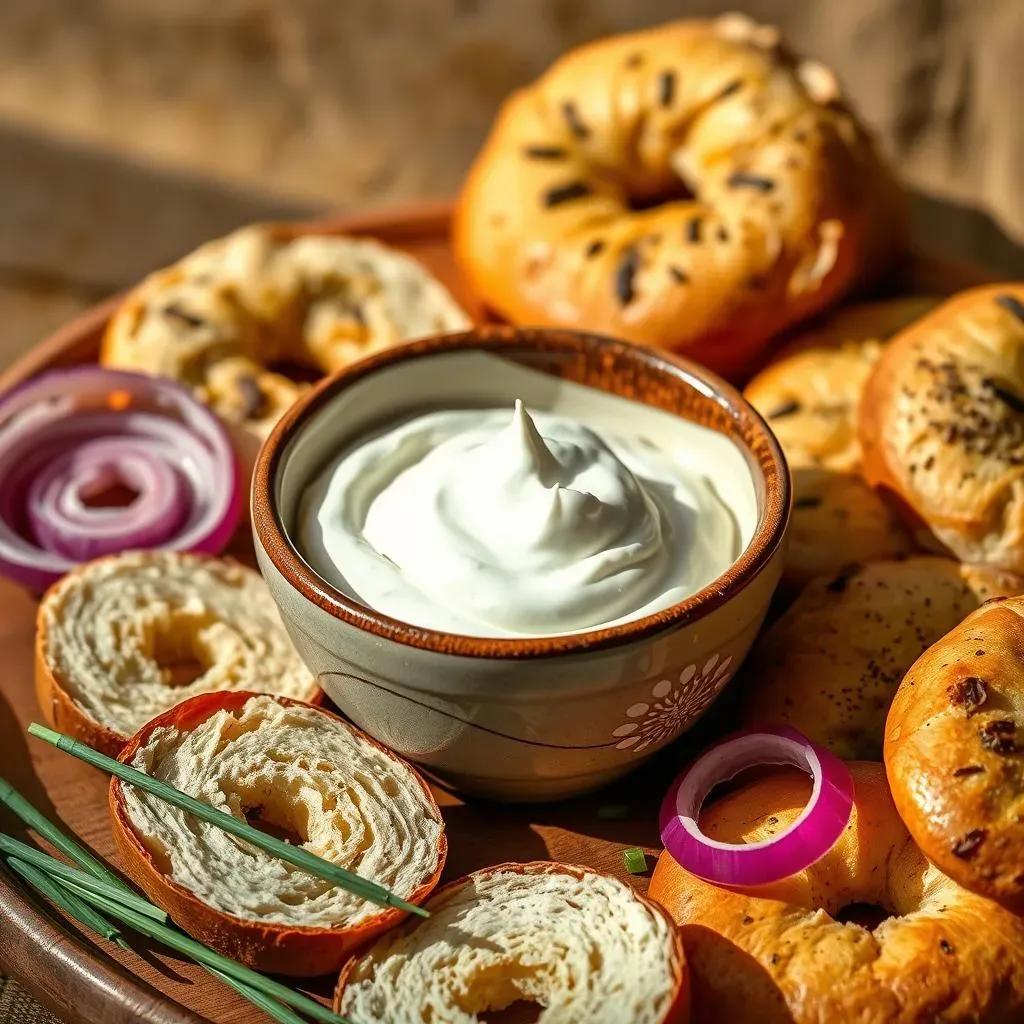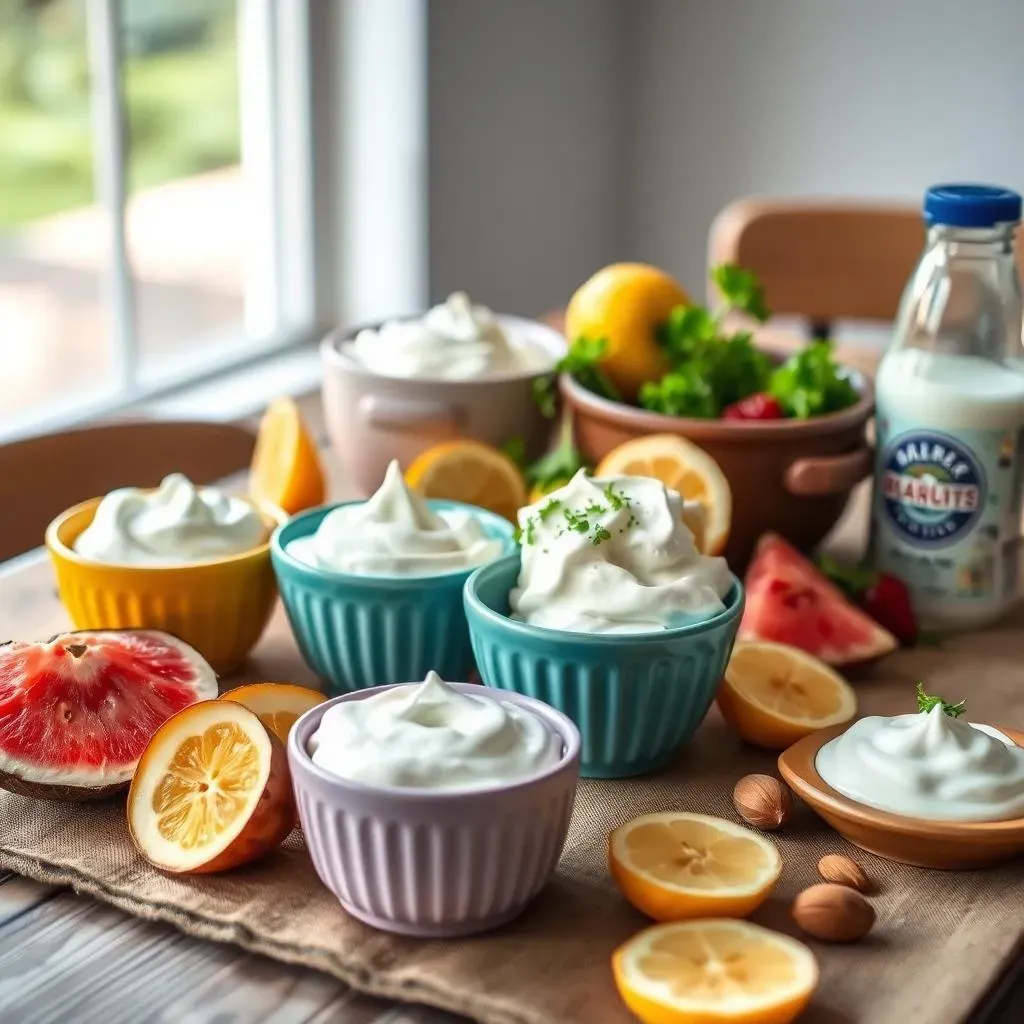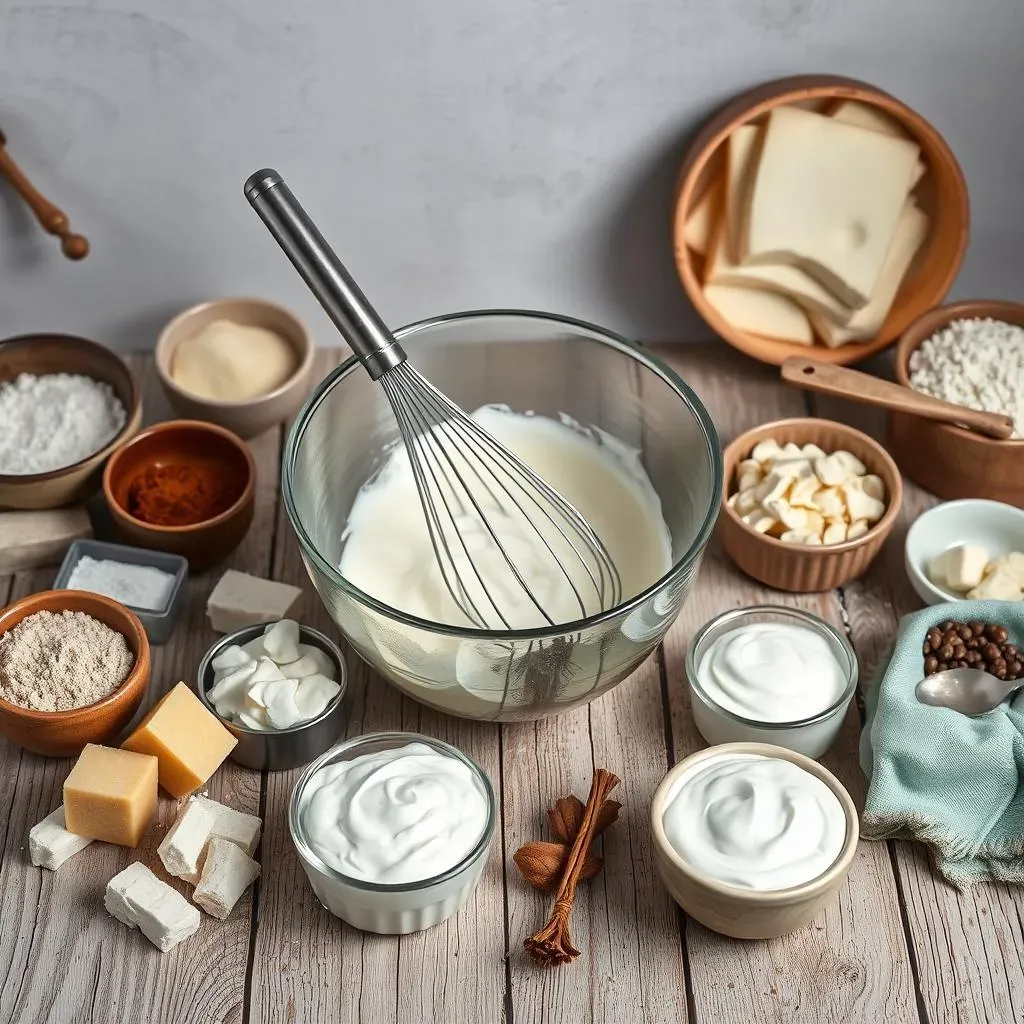Table of Contents
Ever found yourself mid-recipe, craving that tangy zip of sour cream, only to discover you're fresh out or avoiding dairy? It's a baking bummer, I get it. But don't let that derail your dessert dreams! Sour cream isn't just a dollop on your taco; it's a key player in many baked goods, adding moisture, tenderness, and that signature tang. Whether you're lactose-intolerant, vegan, or simply out of the real deal, finding the right non dairy substitute for sour cream in baking is easier than you think. This article is your guide to navigating the world of dairy-free alternatives, so you can bake delicious treats without missing out. We’ll explore what makes sour cream so special, why you might need a substitute, and dive into the best dairy-free options that truly deliver. You’ll learn how to choose the right substitute for your baking needs, ensuring your cakes, muffins, and cookies turn out perfectly every time. Let's get baking!
What's the Deal with Sour Cream?

What's the Deal with Sour Cream?
so sour cream. It's not just some random dairy product hanging out in the fridge. It’s a thick, tangy cream that’s been fermented. Imagine milk, but like, way cooler. This process gives it that unique flavor and texture that’s a cross between cream cheese and yogurt. Think of it as the sassy cousin of regular cream. The tang comes from lactic acid, which is created during fermentation. This acid isn't just there to make your mouth pucker, it also does some magic in baking, keeping things moist and tender. It's like the secret weapon for a lot of delicious recipes.
Why You Might Need a NonDairy Substitute

Why You Might Need a NonDairy Substitute
so why ditch the dairy sour cream? Well, there are a bunch of reasons, and they're all pretty valid. First up, we've got the lactose crew. Lactose intolerance is a real thing, and it can make enjoying dairy a real pain, literally. Then there are the folks with milk allergies; it's not just a preference, it's an actual immune response that can be serious. And let's not forget our vegan friends who avoid all animal products, sour cream included. But even if you're not in any of those categories, maybe you're just trying to cut down on dairy, or you've had a surprise baking urge and your fridge is barren of the creamy stuff. Whatever the reason, a good non-dairy substitute can be a real lifesaver.
It's about keeping your options open, right? I mean, who wants to be limited by a single ingredient? It’s like saying you can only paint with one color. The world is full of amazing flavors, and sometimes, you need to swap things out to make it work for you. It's not about being difficult, it's about being adaptable and inclusive. Plus, some of these non-dairy options are actually pretty cool in their own right. They bring something different to the table, and that's what makes baking fun.
Reason | Description |
|---|---|
Lactose Intolerance | Difficulty digesting lactose, a sugar found in dairy. |
Milk Allergy | Immune response to milk proteins. |
Vegan Lifestyle | Avoidance of all animal products. |
Dietary Preferences | Choosing to limit or avoid dairy for personal reasons. |
Out of Stock | Simply not having sour cream on hand. |
DairyFree Options That Rock in Baking

DairyFree Options That Rock in Baking
Vegan Sour Cream: The Store-Bought Savior
let's talk about store-bought vegan sour cream. It's a game-changer, seriously. You can find brands like Tofutti that are specifically designed to mimic the real deal. These aren't just some sad, watery substitutes. They're creamy, tangy, and they bake up like a dream. I've used them in everything from cakes to muffins, and honestly, you'd never know they weren't dairy. They're made from things like soy, coconut, or cashews, and they're usually fortified with lactic acid to get that signature sour cream tang. It's like having a secret weapon in your baking arsenal. If you're new to the non-dairy world, this is a great place to start. It's easy, it's reliable, and it works like a charm.
It's all about convenience when we are talking about vegan sour cream, right? I mean, sometimes you just don't want to mess around with making your own. You need a quick fix and these store-bought options are perfect for that. They're also great if you want to make sure you're getting that consistent texture and flavor every time. I know, it can be a gamble when you're experimenting with a new recipe, so having a reliable substitute is important.
DIY Dairy-Free Magic
Now, if you're feeling a bit more adventurous, let's talk about making your own dairy-free sour cream. It's not as complicated as it sounds, I promise. One popular method involves using cashews. You soak them, blend them with water, lemon juice, and a bit of salt, and boom, you have a creamy, tangy base that can stand in for sour cream. Another option is to use full-fat coconut milk or cream. The trick here is to use the thick part from the top of the can and add some lemon juice for that sour flavor. It’s like a science experiment, but the result is delicious. It's a great way to control the ingredients and make sure you're getting exactly what you want. Plus, it’s a bit more budget-friendly than buying a pre-made product.
I've experimented with both the cashew and coconut versions, and both have their perks. Cashews give you a really smooth, rich texture, while coconut adds a touch of sweetness that can be amazing in certain recipes. Just make sure you're using unsweetened coconut milk, unless you're looking to add that extra sweetness. It's all about finding what works best for your taste and your recipe. It’s your kitchen, you make the rules.
Substitute | Main Ingredient | Best Use |
|---|---|---|
Vegan Sour Cream (Store-Bought) | Soy, Coconut, Cashews | Versatile, great for all baking recipes |
Cashew Sour Cream | Cashews | Smooth texture, good for frostings and cakes |
Coconut Cream Sour Cream | Full-fat Coconut Milk | Good for muffins and recipes that need sweetness |
Soy and Other Alternatives
Don't think cashews and coconut are the only options, oh no. There are many more! Soy yogurt can be a good substitute for sour cream, especially when you need that extra tang. You can also use silken tofu, blended until smooth, and add lemon juice or apple cider vinegar to get that sour flavor. And don't forget about the power of white beans! Yes, you heard that right. Blended white beans can create a surprisingly creamy base. It might sound a little odd, but it really works.
I will be honest, the first time I heard about using white beans, I was skeptical. But, I gave it a try, and I was pleasantly surprised. It’s all about experimenting and seeing what works for you. The key to all these alternatives is to make sure you're getting the texture and flavor right. Don't be afraid to adjust the amount of liquid or acid until you get the consistency you're looking for. Baking is all about having fun, so go ahead and try out something new.
Making the Best Non Dairy Substitute for Sour Cream in Baking

Making the Best Non Dairy Substitute for Sour Cream in Baking
so you've got your non-dairy sour cream substitute, but how do you make sure it actually works in your baking? It's not as simple as a one-to-one swap, sometimes. The key is to think about texture and consistency. If your substitute is too thin, it might make your batter runny, and no one wants a soggy cake. To fix this, you can add a thickening agent like cornstarch or tapioca starch. Start with a small amount, maybe a teaspoon, and add more until you reach the desired consistency. On the flip side, if your substitute is too thick, it won't mix evenly into your batter. A little bit of plant-based milk or water can help thin it out.
Also, remember that the flavor profile of your substitute can impact the overall taste of your baked goods. Some substitutes, like coconut, have a distinct flavor that might not work in every recipe. Cashew-based substitutes tend to be more neutral, making them a safer bet for a wide variety of recipes. And don't forget the tang! If your substitute lacks that signature sour cream zip, a squeeze of lemon juice or a dash of apple cider vinegar can do the trick. Start with a small amount and taste as you go. It's like being a mad scientist in the kitchen, but instead of explosions, you get delicious baked goods.
Issue | Solution |
|---|---|
Substitute is too thin | Add cornstarch or tapioca starch |
Substitute is too thick | Add plant-based milk or water |
Lacking tang | Add lemon juice or apple cider vinegar |
Another tip is to think about the temperature of your substitute. If you're adding it to a hot mixture, like a sauce or a warm batter, it's best to temper it first. This means slowly adding a small amount of the hot mixture to your substitute, whisking constantly, before adding the whole thing to the batter. This helps prevent curdling, especially with yogurt-based substitutes. It’s like introducing a new friend slowly instead of throwing them into the deep end.
Also, when using yogurt or dairy-free alternatives in sauces, be careful with heat. These can curdle if overheated, so it is best to add them at the end of the cooking process or use low heat. It's like they have a sensitive side, so handle them with care. And finally, don’t be afraid to experiment! Baking is all about trial and error, and sometimes the best discoveries come from happy accidents. So, go ahead, mix things up, and see what delicious creations you can come up with. It’s your kitchen, your rules, and your amazing non-dairy baked goods.
Wrapping Up Your Non-Dairy Baking Adventure
So, there you have it: a whole world of non-dairy substitutes for sour cream, ready to step in and save your baking projects. From creamy cashews to tangy coconut milk and clever yogurt hacks, you've got options. The key is to experiment and find what works best for your specific recipe and taste. Don't be afraid to mix things up and get a little creative, and remember, baking should be fun. Whether it's a dietary need or just a preference, you don't have to sacrifice flavor or texture when you leave out the dairy. Now, go forth and bake some amazing treats, knowing that you've got the power to make it all happen, dairy-free and delicious!